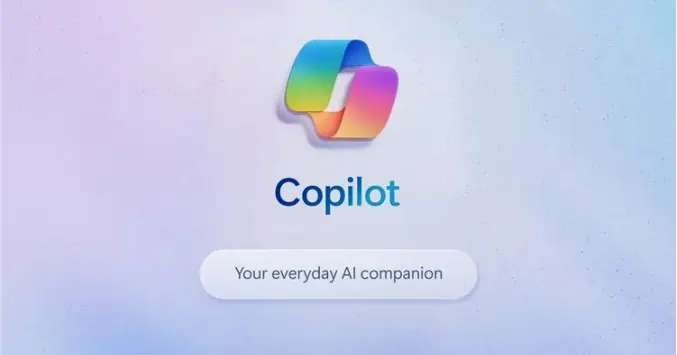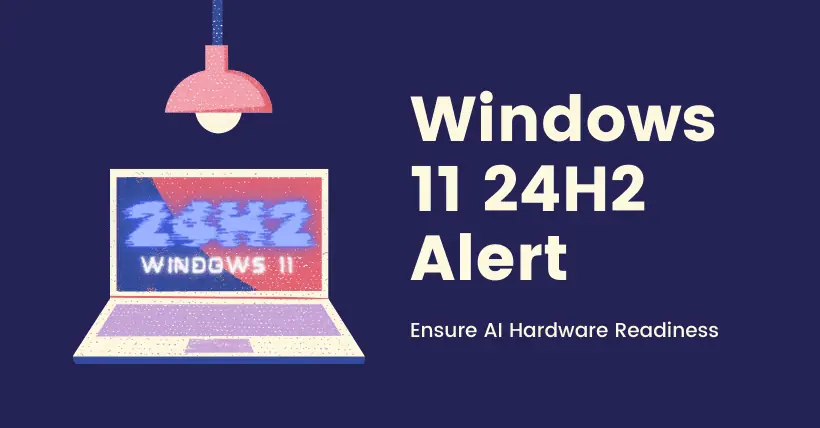Recently, I shared news about Microsoft possibly implementing full-screen notifications to urge existing Windows 10 users to upgrade to Windows 11. These notifications can’t be disabled and represent an increasingly aggressive approach.
Next, I’ll share something similar, but the focus isn’t on Windows 10; it’s on Windows 11. As many of you know, Microsoft will release a significant version update, Windows 11 24H2, later this year.
The upgrade to Windows 11 24H2 for current Windows 11 system users may not go smoothly.
At this point, some of you might think, “My computer was assembled in the last two or three years with high specs and meets all the requirements of Windows 11, including TPM 2.0. So, the upgrade to Windows 11 24H2 should be fine, right?” — If that’s what you’re thinking, you’re being too optimistic.

Windows 11 24H2 is different from typical major updates as it will incorporate a significant amount of AI functionality. For example, an NPU resource usage monitoring module will be added to the Task Manager (see the image above), and it will deeply integrate Copilot, which primarily places demands on the CPU.
In other words, the installation process of the upcoming Windows 11 24H2 (and future Windows 12) will include checks for AI support. If your current hardware doesn’t support AI, you might face issues.

Therefore, it’s realistic and important to consider how Microsoft will treat users whose hardware doesn’t support AI, and the potential negative impacts of using Windows 11 24H2 if their hardware lacks AI support.
The worst-case scenario might be outright blocking users from installing Windows 11 24H2, but this is unlikely as it’s too extreme and would affect too many users.

I’ve learned that if a user’s hardware doesn’t meet the requirements, they might still bypass the normal installation process but will receive a watermark warning that some AI-driven built-in apps can’t be used due to unsupported CPUs.
Recently, a third-party team installed Windows 11 Insider Build 26200 (allegedly 24H2 RTM) on a computer with an ARM architecture processor and discovered code added by Microsoft for checking AI support, requiring at least 16GB of memory, 225GB of hard disk space, and a Qualcomm Snapdragon X Elite series processor (see images three and four).

The most interesting and concerning issue is the requirements Windows 11 24H2 imposes on traditional x86 architecture processors in terms of AI. There is no official and definitive statement from Microsoft yet, but it is rumored that there are certain demands on the NPU capabilities of the processors.
However, “where there’s a will, there’s a way.” Whether it’s the upcoming Windows 11 24H2 or future Windows 12, if your hardware doesn’t meet Microsoft’s requirements, there will be various ways to circumvent the restrictions, though this might pose certain risks.

For example:
On April 12th, Microsoft announced a fix for a critical bug on the Intel platform. Before this, some versions of Intel’s Smart Sound Technology drivers were incompatible with Intel’s 11th-generation Core processors and Windows 11, potentially causing blue screen issues. Therefore, Microsoft previously prevented these users from upgrading to Windows 11. After fixing this bug, these users can now smoothly upgrade to Windows 11.
If these users had bypassed the checks and installed Windows 11 before Microsoft fixed the bug, they shouldn’t be too complacent, thinking everything is fine. This fundamentally represents self-deception because underlying compatibility issues still exist, which could lead to Windows 11 running unstably and experiencing blue screen crashes.

For those interested in this content, you can search for and read “Delayed Love! Microsoft Fixes Serious Bug, Allowing More Users to Upgrade to Windows 11” on my homepage for more details.
This is one of the main reasons many people complain about Windows 11. Microsoft had already clearly warned that some computers didn’t meet the requirements for Windows 11, yet some users bypassed these measures and installed Windows 11 on their own. When they encountered problems, they complained about Windows 11 being unstable, which is “unfair.”
Thus, we shouldn’t be complacent about Microsoft’s warnings. Some requirements might be bypassed without noticeable effects on operation, but other warnings are crucial. If hardware doesn’t meet Microsoft’s requirements, it could lead to many unpredictable consequences.

In this context, we should not take the hardware requirements for the upcoming Windows 11 24H2 lightly and should give them serious consideration.
My advice is: if you need a new computer soon and aren’t interested in AI, you can ignore this issue and simply choose not to install Windows 11 24H2 later.
Conversely, if you’re not in urgent need of a new computer and can wait about half a year with a sufficient budget and an interest in trying new things, I strongly recommend waiting. Intel and AMD will release the next generation of processors with stronger AI performance in the second half of the year, and Windows 11 24H2 will also be released then. Waiting until all these developments are available is the safest approach.
Related:

Disclaimer: This article is created by the original author. The content of the article represents their personal opinions. Our reposting is for sharing and discussion purposes only and does not imply our endorsement or agreement. If you have any objections, please contact us through the provided channels.








